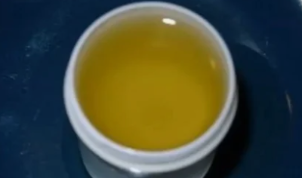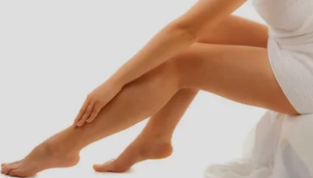Varicose veins are a pathological process characterized by dilation of the blood vessels that carry blood to the heart, vascular deformation, valve insufficiency, and subsequent dysfunction. The obvious signs of the disease are the appearance of veins protruding to the skin surface, its nodules, and trophic ulcers.
However, the main danger of varicose veins is blood stagnation and the development of thrombophlebitis, that is, abnormal blood circulation processes. In order to completely treat the disease, a series of measures have been used, among which medication and surgery are the most needed and effective. In addition, ointments and gels for varicose veins are often used as adjuvant treatments, which we will discuss.
Uses and types of varicose vein ointment
First of all, I want to point out that ointments and gels are used in all stages of disease development and are designed to provide different effects depending on the length of application:

- In the initial stage of varicose veins, gels and ointments can inhibit the progression of the pathological process and prevent vessel deformation and thinning of the vessel wall.
- In the later stages, the goal is also to prevent disease progression. However, in addition, topical products help to improve blood circulation, prevent severe congestion, and are also designed to relieve symptoms, including pain, swelling, cramps, skin pigmentation changes, and so on.
- In addition, after surgery for varicose veins, doctors usually prescribe ointments and gels. In this case, the recovery period can be accelerated, not only can heal superficial tissues, but also heal internal structures. In addition, depending on the nature of the drug, certain gels and ointments can relieve possible swelling, reduce inflammation, and prevent other discomforts caused by certain types of surgery.
In ointments and gels, some drugs are divided into several categories. The choice of drugs should be based on clinical signs, which may be as follows:
- Increased fatigue, pain and tightness in the legs;
- Vein swelling (this symptom is accompanied by varicose veins in almost all stages, the severity of the symptom is very important);
- Puffiness, strength;
- Convulsions, usually at night;
- Changes in skin pigmentation can make the skin bluish.
It is important to understand that the use of ointments or gels cannot cure varicose veins, but these funds can indeed reduce the intensity of individual symptoms, improve vascular conditions to a certain extent and prevent the development of pathology.
In addition, you must consult a phlebologist before using any of the following medicines.
Phlebotonics
This group of drugs forms the basis of medical treatment of varicose veins and is prescribed in the form of tablets and ointments. These drugs are designed to improve blood circulation and thereby prevent stagnant processes. They increase the outflow of lymphatic and vascular tension, reduce the intensity of edema to a certain extent, and also eliminate the feeling of heaviness and fatigue in the legs.
Anticoagulant
Their main characteristic is blood thinning, which is very important in certain stages of varicose veins and in the case of pathological examinations in the context of increased platelet concentration in the blood. Taking into account the fact that the blood becomes less viscous, the circulation process in the vascular bed is promoted, the blood circulation process is normalized and the stagnation process is eliminated. Likewise, anticoagulants can prevent blood clots from forming.
Taking into account the described properties, this group of drugs helps to reduce leg swelling, relieve pain by relieving congestion, and combat contractions and fatigue. Similarly, anticoagulants can prevent the development of complications such as thrombophlebitis or the formation of trophic ulcers.
Anti-inflammatory
 Phlebologists can prescribe local anti-inflammatory drugs in the form of ointments or gels for patients with varicose veins based on the obtained diagnostic data.
Phlebologists can prescribe local anti-inflammatory drugs in the form of ointments or gels for patients with varicose veins based on the obtained diagnostic data.
A notable example is non-steroidal anti-inflammatory drugs (NSAIDs), which can effectively eliminate pain and have obvious anti-inflammatory effects.
Ointment based on natural ingredients
These drugs are mainly prescribed in the initial stage of varicose veins to treat pregnant women, or to replace the previously described drugs in order to make a difference during the treatment.
The above is due to the fact that products based on natural (usually plant ingredients) are more cautious. In addition, they can be used continuously, unlike the medication group used in the course of treatment, rest is important afterwards.
The difference between ointment and gel
In essence, ointments and gels purchased in pharmacies are similar drugs. If they are the same group of drugs and have the same therapeutic effect, they are used in the same way, in addition, they even contain the same chemical composition.
As for the differences, the differences between them are small and far away:
- The ointment is made based on plant and animal fats. It is also important to understand that the active ingredients in the ointment will not completely dissolve and retain their original chemical structure. Due to these characteristics, the ointment must be rubbed into the skin more carefully, and even after that, you must wait for 5 to 15 minutes to be completely absorbed, otherwise the therapeutic effect will be incomplete.
- The distinguishing feature of gels is that they are water-based, and the medicinal ingredients in their ingredients are completely dissolved. Due to these factors, the gel absorbs faster.
As mentioned earlier, the attending physician should prescribe any medication, including topical varicose vein ointments and ointments.























